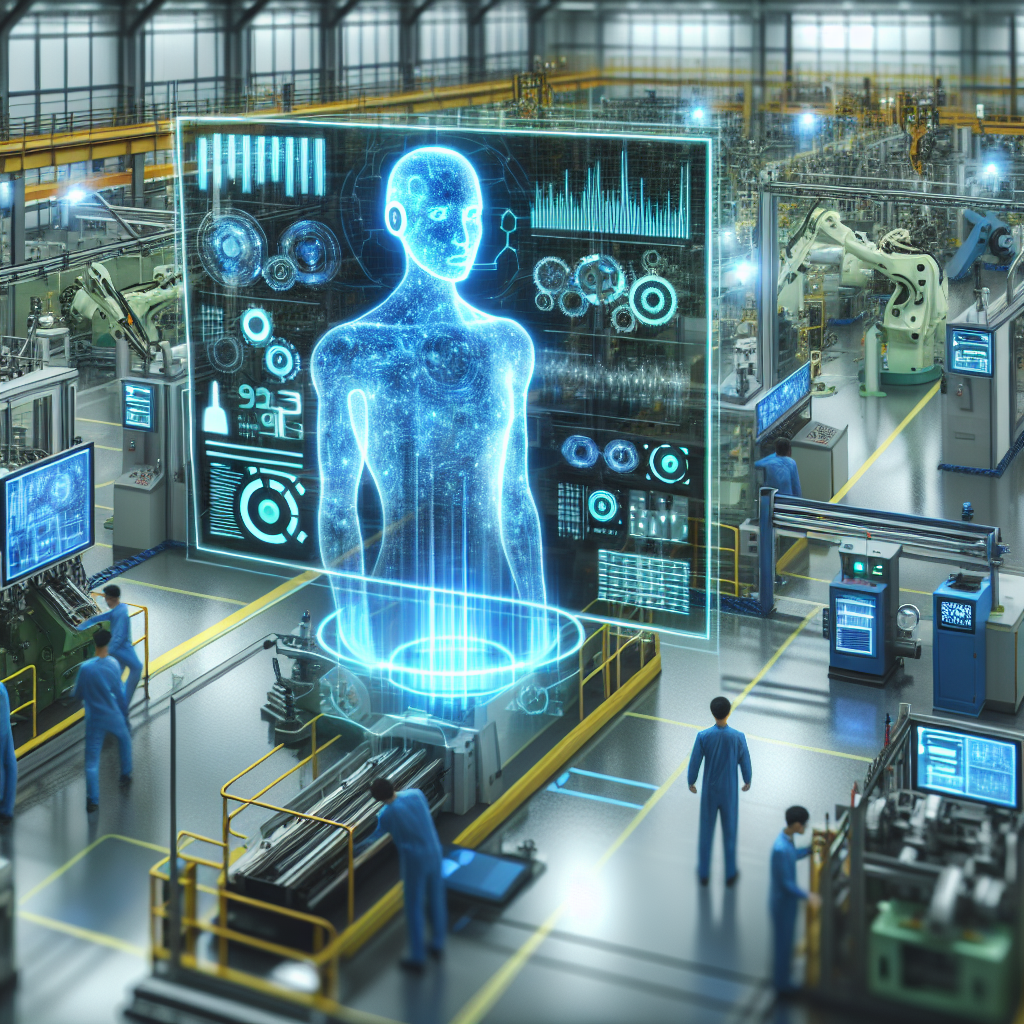The Impact of AI on Manufacturing Cost Reduction
Artificial intelligence (AI) has been revolutionizing various industries, including manufacturing, by automating processes, increasing efficiency, and reducing costs. In the manufacturing sector, AI is being used to optimize production processes, improve quality control, and enhance supply chain management. This technology is helping companies reduce manufacturing costs and increase competitiveness in the global market. In this article, we will explore the impact of AI on manufacturing cost reduction and how businesses can leverage this technology to achieve significant savings.
1. Optimizing Production Processes
One of the key ways AI is reducing manufacturing costs is by optimizing production processes. AI algorithms can analyze vast amounts of data in real-time to identify inefficiencies in the production line and suggest improvements. For example, AI can predict machine failure before it happens, enabling proactive maintenance that reduces downtime and increases productivity. This predictive maintenance approach can help companies save significant costs associated with unplanned downtime and equipment repairs.
AI can also optimize inventory management by analyzing demand patterns and production schedules to ensure that the right amount of raw materials and finished products are available at the right time. By reducing excess inventory and minimizing stockouts, companies can lower carrying costs and improve cash flow. AI-powered demand forecasting can also help companies better anticipate customer demand and adjust production accordingly, reducing the risk of overproduction and waste.
2. Improving Quality Control
AI is also playing a crucial role in improving quality control in manufacturing processes. AI-powered systems can monitor production lines in real-time and detect defects or anomalies before they escalate into larger issues. By identifying and addressing quality issues early on, companies can avoid costly recalls, rework, and warranty claims. This proactive approach to quality control can help companies save significant costs associated with defective products and damaged brand reputation.
AI can also enhance product inspection processes by automating visual inspections with high accuracy and speed. AI-powered image recognition systems can detect even subtle defects that may be missed by human inspectors, ensuring that only high-quality products reach the market. By automating quality control processes, companies can reduce labor costs, improve product consistency, and increase customer satisfaction.
3. Enhancing Supply Chain Management
AI is revolutionizing supply chain management by providing real-time visibility into inventory, transportation, and production processes. AI algorithms can analyze supply chain data from multiple sources and predict disruptions or bottlenecks before they occur. By identifying potential issues in advance, companies can take proactive measures to mitigate risks and ensure smooth operations. This proactive approach to supply chain management can help companies reduce costs associated with delays, stockouts, and transportation inefficiencies.
AI can also optimize logistics and transportation routes by analyzing factors such as traffic patterns, weather conditions, and fuel prices. By identifying the most efficient routes and modes of transportation, companies can reduce transportation costs, minimize carbon emissions, and improve delivery times. AI-powered supply chain optimization can help companies achieve cost savings while enhancing sustainability and customer satisfaction.
4. Leveraging AI for Cost Reduction
To leverage the full potential of AI for cost reduction in manufacturing, companies need to invest in AI technologies and develop a comprehensive strategy for implementation. Here are some key steps businesses can take to maximize the impact of AI on manufacturing cost reduction:
– Identify key areas for AI implementation: Companies should assess their manufacturing processes and identify areas where AI can bring the most significant cost savings. This could include production optimization, quality control, inventory management, or supply chain optimization.
– Invest in AI tools and technologies: Companies should invest in AI tools and technologies that are tailored to their specific needs and objectives. This could include AI-powered predictive maintenance systems, quality control software, demand forecasting algorithms, or supply chain optimization platforms.
– Train employees on AI technologies: To ensure successful implementation of AI in manufacturing, companies should provide training to employees on how to use AI tools and technologies effectively. This could include training on data analysis, machine learning algorithms, and AI-driven decision-making processes.
– Monitor and evaluate AI performance: Companies should continuously monitor the performance of AI systems and evaluate their impact on manufacturing cost reduction. By analyzing key performance indicators such as production efficiency, quality control accuracy, and supply chain optimization, companies can identify areas for improvement and make informed decisions.
– Collaborate with AI vendors and experts: Companies can benefit from collaborating with AI vendors and experts who have experience in implementing AI solutions in the manufacturing sector. By partnering with AI specialists, companies can access cutting-edge technologies, best practices, and industry insights to achieve optimal cost savings.
5. FAQs
Q: How can AI help reduce manufacturing costs?
A: AI can help reduce manufacturing costs by optimizing production processes, improving quality control, and enhancing supply chain management. By analyzing data in real-time, AI can identify inefficiencies, prevent defects, and predict disruptions, leading to significant cost savings.
Q: What are some examples of AI applications in manufacturing?
A: Some examples of AI applications in manufacturing include predictive maintenance, quality control automation, demand forecasting, inventory optimization, and supply chain management. These AI-powered solutions help companies improve efficiency, reduce costs, and enhance competitiveness in the global market.
Q: How can companies implement AI in manufacturing?
A: Companies can implement AI in manufacturing by identifying key areas for AI implementation, investing in AI tools and technologies, training employees on AI usage, monitoring AI performance, and collaborating with AI vendors and experts. By following these steps, companies can leverage the full potential of AI for cost reduction and operational excellence.
In conclusion, AI is transforming the manufacturing industry by helping companies reduce costs, increase efficiency, and improve competitiveness. By optimizing production processes, improving quality control, and enhancing supply chain management, AI is enabling manufacturers to achieve significant cost savings and drive sustainable growth. By investing in AI technologies and developing a comprehensive strategy for implementation, companies can leverage the full potential of AI to achieve operational excellence and stay ahead of the competition.

